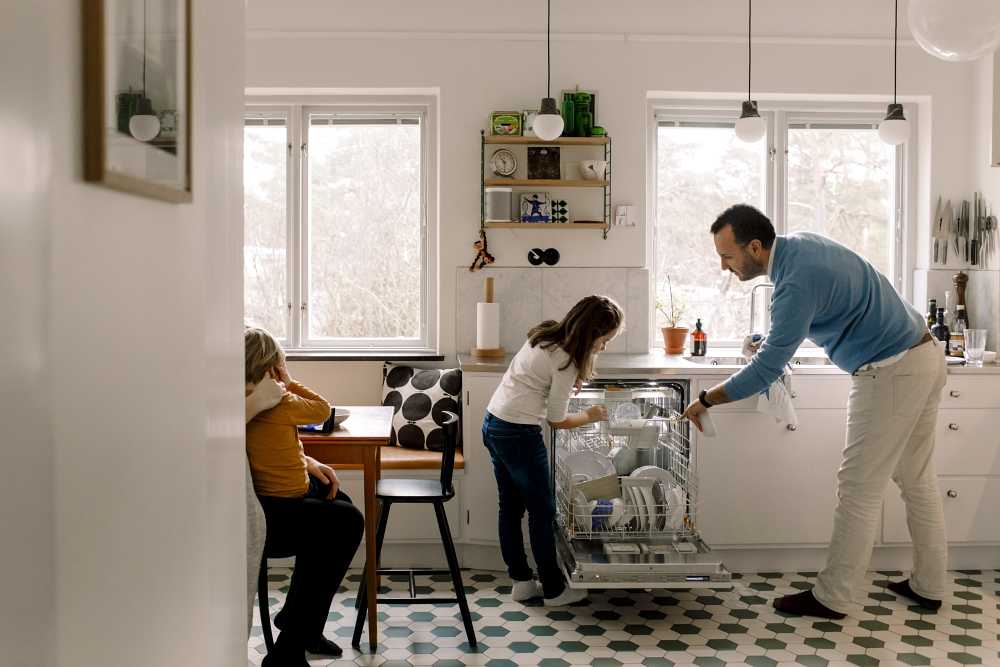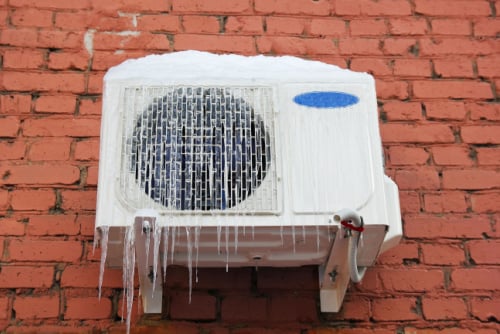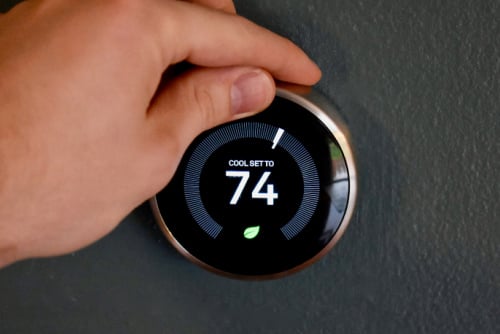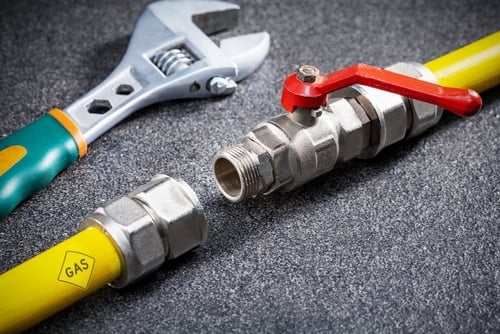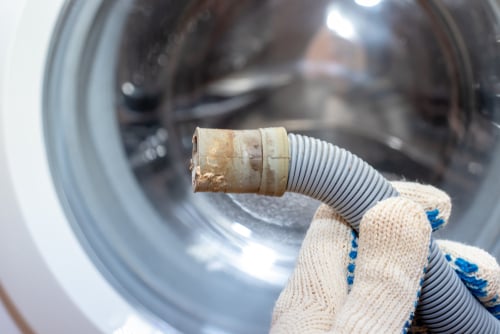DIY skills: In an era where more jobs are less skilled and school budget cuts eliminate home economics and shop classes, how are Americans learning and teaching home maintenance skills and DIY know-how? We wanted to know how American parents are doubling down on DIY, not just for themselves, but to equip the next generation with hands-on skills.
Methodology
To find out, in May 2025, we surveyed 1,002 parents of children under 18 living at home about how they planned on teaching their children basic home maintenance skills, and whether they felt like they were confident in their own knowledge and skills. 50% were women, 49% men, and 1% were nonbinary; ages ranged from 18-60 with an average age of 37. The average age of their oldest child still living with them was 9 years old.
Parents Feel Equipped to Teach, But Are Concerned About the Future
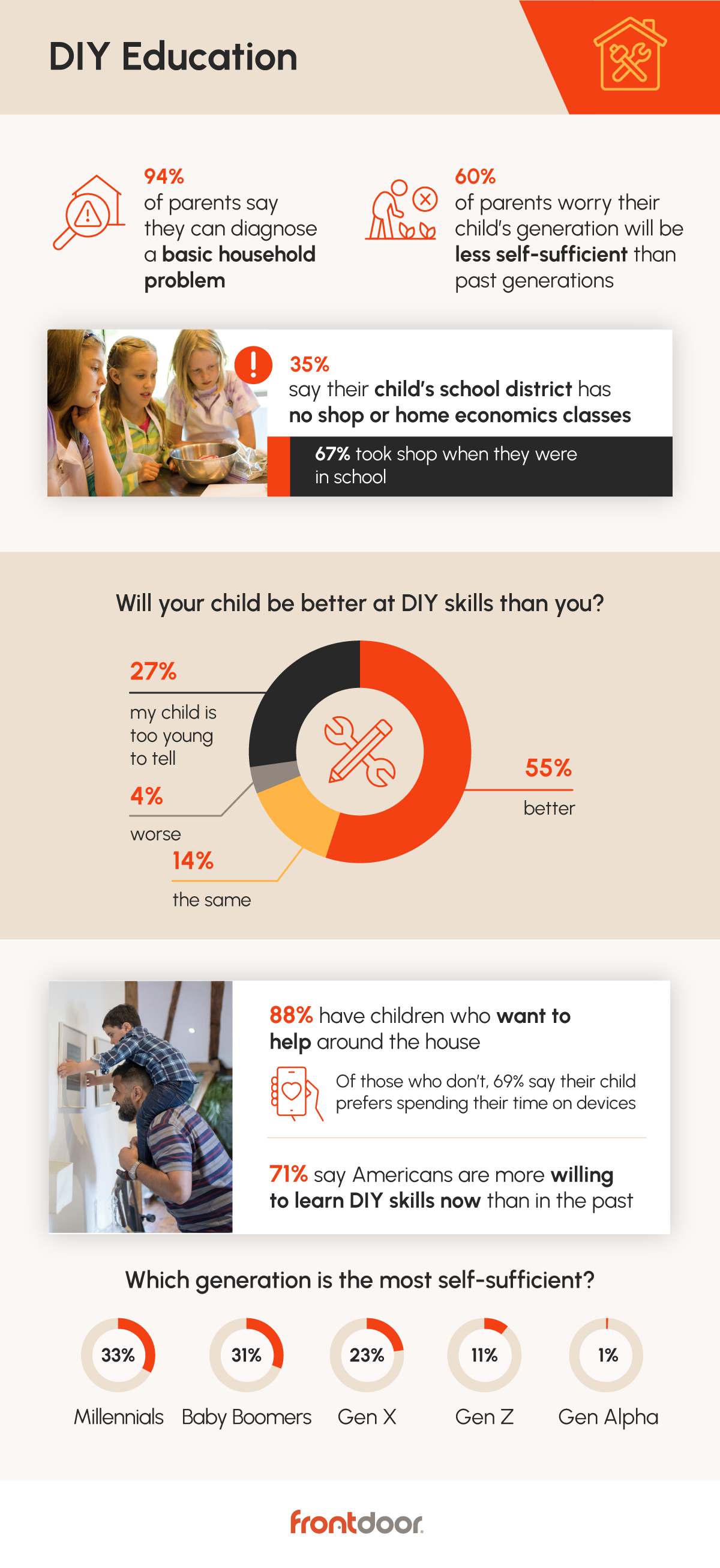
An overwhelming 94% of parents say they can diagnose a basic household problem. Despite that confidence, 60% worry their child’s generation won’t be as self-sufficient as generations before. One major factor? A lack of institutional support.
Do schools in America include DIY or practical skills in their curriculum?
Over a third of parents (35%) say their child's school district doesn’t offer shop or home economics classes—even though 67% of these same parents took shop when they were in school.
The result is a growing question in many households: Will my child be better at DIY than I am?
- 55% believe their child will surpass them
- 14% think they’ll be about the same
- Only 4% expect their child to be less capable
- 27% say it’s too early to tell as their child is too young
Are fewer American kids learning DIY skills compared to previous generations?
Most parents (88%) say their kids want to help around the house. Among the 12% who say their children don't show interest, 69% blame devices for the distraction.
Still, there’s optimism. 71% of parents believe Americans today are more willing to learn DIY skills than in the past.
When asked which generation is the most self-sufficient:
- Millennials led the pack (33%)
- Closely followed by Baby Boomers (31%)
- Gen X (23%) and Gen Z (11%) trailed behind
- Just 1% named Gen Alpha (they’re probably still too young)
What are the common DIY skills taught to children in American households?
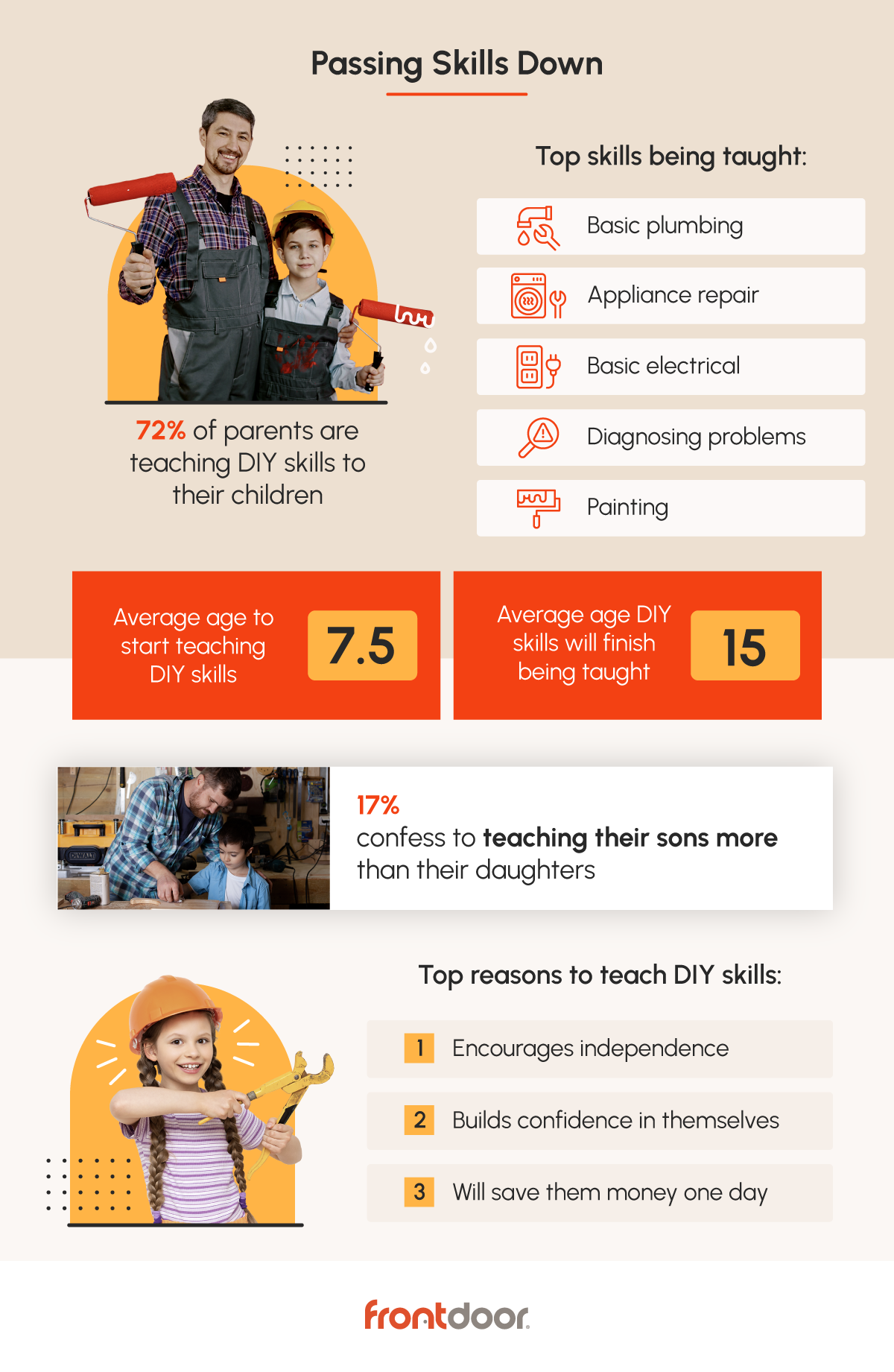
Parents aren’t waiting for schools to step up and instead are taking matters into their own hands starting at an early age. Nearly three-quarters (72%) are actively teaching DIY skills to their kids, starting at an average age of 7.5, and continuing until around age 15.
Top skills being taught:
- Basic plumbing
- Appliance repair
- Basic electrical work
- Diagnosing problems
- Painting
But there’s a gender gap: 17% of parents admit they’re teaching more DIY skills to their sons than their daughters.
The motivations to teach these are clear:
- DIY builds independence
- Skills boosts kids’ confidence
- DIY will result in long-term savings as their children move into their own homes
1 in 3 Parents Say They Weren’t Taught Enough DIY Skills
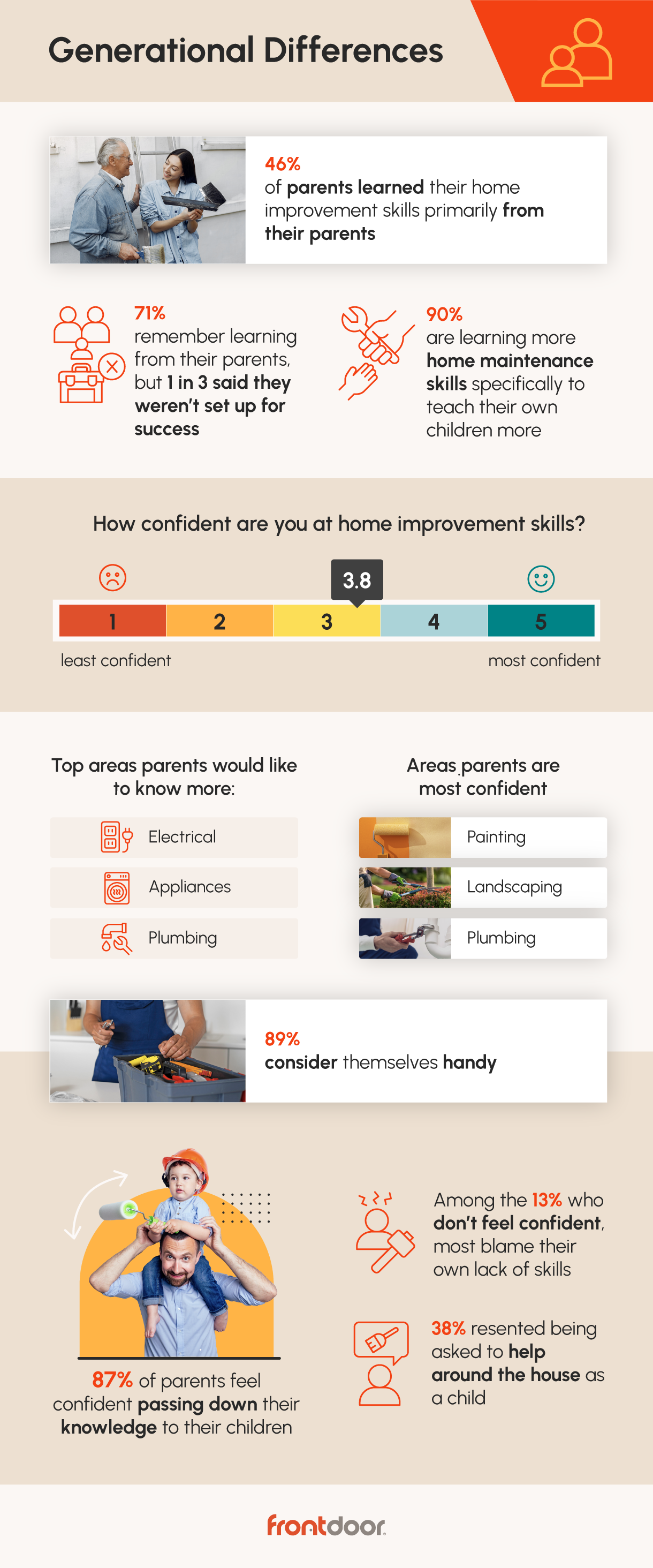
Most parents (46%) learned home improvement skills from their own parents—and 71% recall learning from them firsthand. Still, one in three say they weren’t truly set up for success. That may be why 90% are now actively learning more DIY skills—not just for themselves, but to better prepare their children.
Confidence is high, with 80% of parents describing themselves as “handy,” and 87% feeling capable of passing their knowledge on. Among the 13% who don’t feel confident, most cite their own lack of experience.
Interestingly, the cycle of resentment may be ending: while 38% resented being asked to help as children, today’s parents are reshaping the narrative around involvement and empowerment.
Confidence by the numbers:
- Average confidence rating: 3.8 out of 5
- Top areas parents want to improve: Electrical, appliances, and plumbing
- Most confident in: Painting, landscaping, and plumbing
And where confidence fails, don’t forget Frontdoor can help: the Frontdoor app enables you to video chat with home improvement professionals and experts of all stripes, from electricians to all around handypeople happy to help with DIY projects big and small as well as diagnosing issues around the house.
For media inquiries reach out to media@digitalthirdcoast.net
Fair Use
*When using this data and research, please attribute by linking to this study and citing frontdoor.com.
Was this article helpful?

